For centuries the world has been trying to work out where the waters of the seemingly bottomless Fosse Dionne spring in central France come from.
Some ancients believed they derived from the lair of a serpent king. Others thought there was a portal to another world at the base of the spring.
Between the years of 1974 and 1996 two brave divers lost their lives attempting to solve the mystery, getting into difficulties in the narrow passageways that lie beneath the surface.
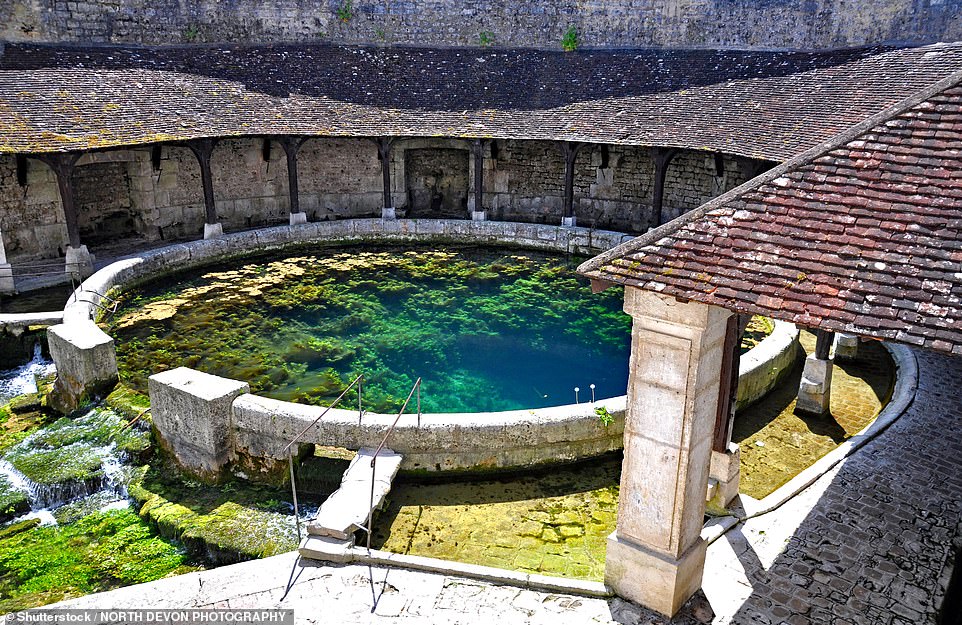
The mysterious Fosse Dionne spring (pictured) is located in the heritage town of Tonnerre in the Burgundy wine region
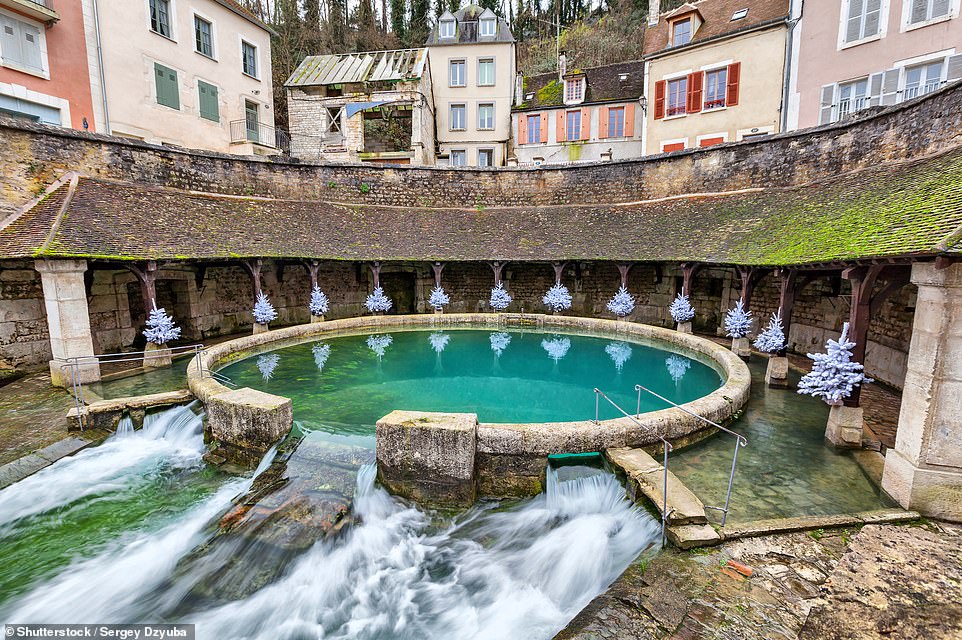
The full answer as to what lies at the base of the spring remains elusive, and it’s this enigma that keeps tourists visiting the spring every year
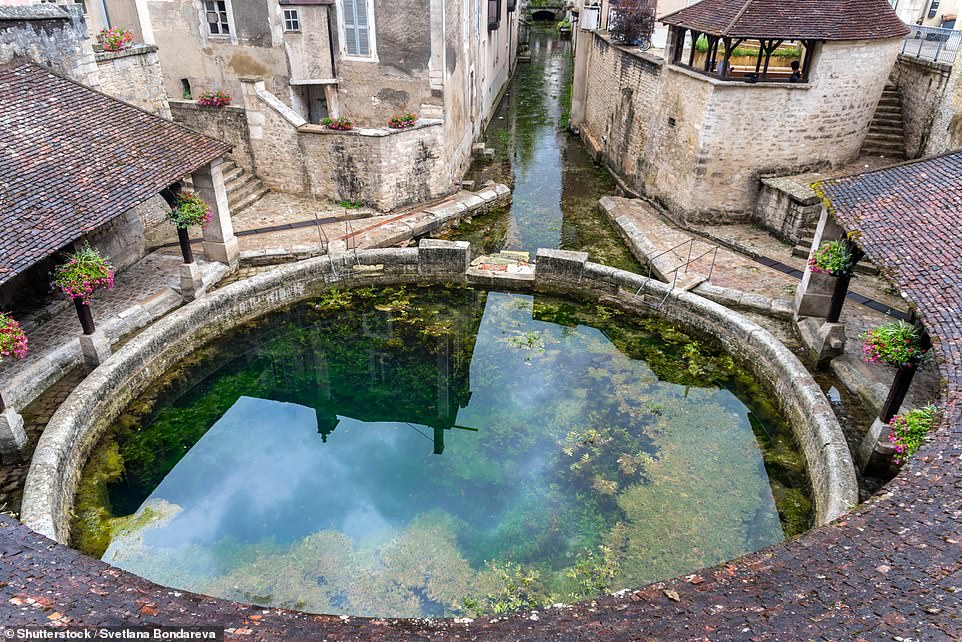
Dye tracing studies have intimated that some of the spring’s water comes from an underground section of the Laigne River, which flows above ground 27 miles (43.5 kilometres) from Tonnerre
Yet still, the full answer as to what lies at the base of the spring remains elusive, and it’s this enigma that keeps tourists visiting the spring every year.
The spring is set in the pretty pastel-coloured town of Tonnerre in Burgundy, through which the River Armancon flows – and spews out more than 300 litres of water per second – that’s enough to fill three standard bathtubs.
In times of flood, more than 3,000 litres a second can be seen pouring out of the natural phenomenon.
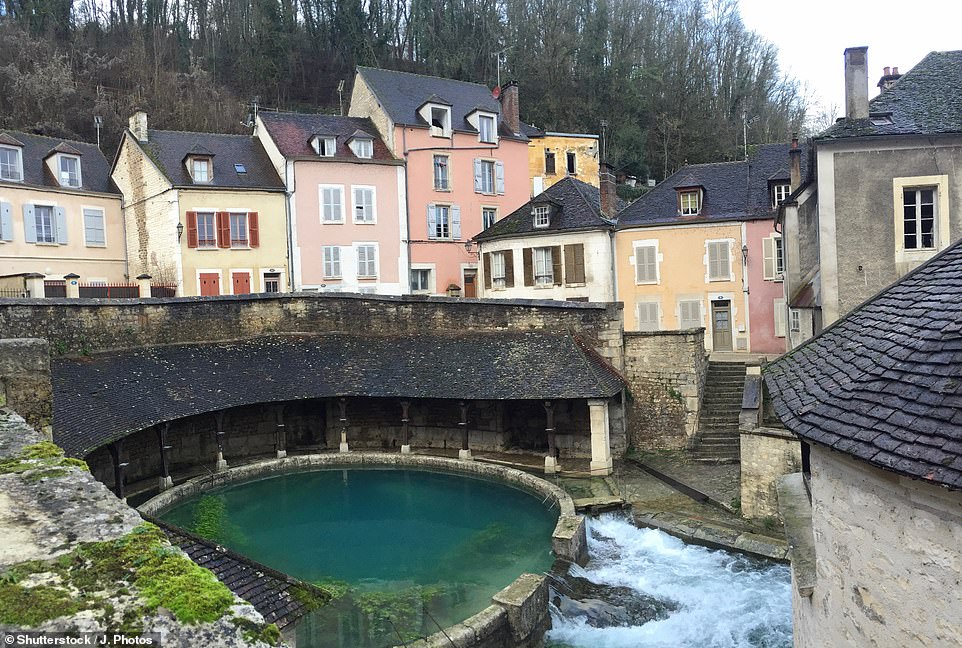
In the 18th century, French nobles built a wash house or ‘lavoir’ around the spring and this stone structure still surrounds the waters today
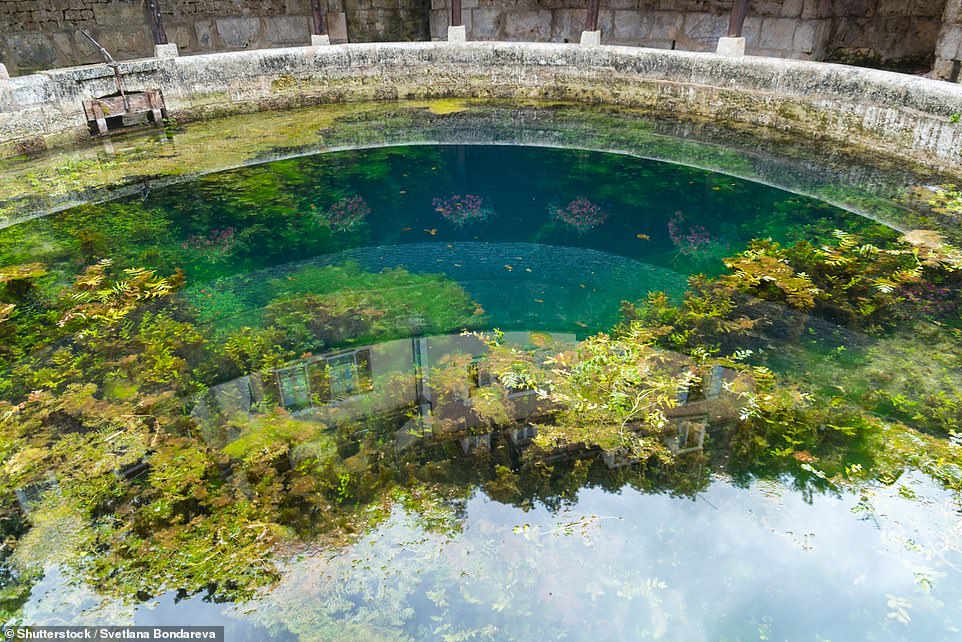
The waters of the Fosse Dionne look deep even from the surface. Some ancients believed there was a portal to another world at the bottom of the spring
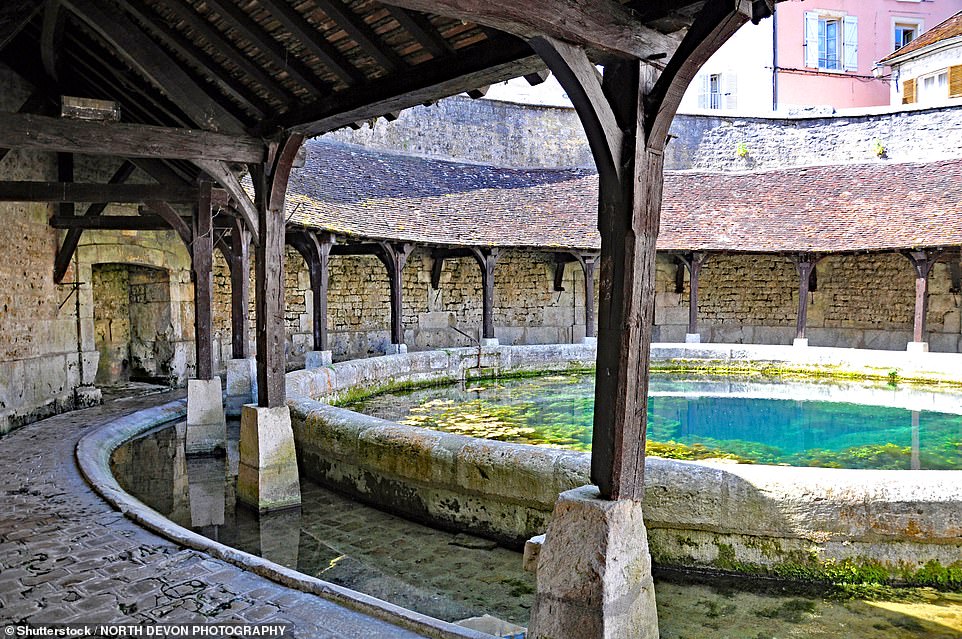
Visitors to the spring can wander around the historical washhouse buildings, peer into the blue-green waters and puzzle over their source
The oldest written references to the spring can be traced back to the 7th century and it’s known that the Romans used its waters for drinking.
In the 18th century, French nobles built a washhouse or ‘lavoir’ around the spring and this stone structure still surrounds the waters today.
Visitors to the spring can wander around the historical washhouse buildings, peer into the blue-green waters of the spring, which look bottomless even when viewing them from the surface, and puzzle over their source.
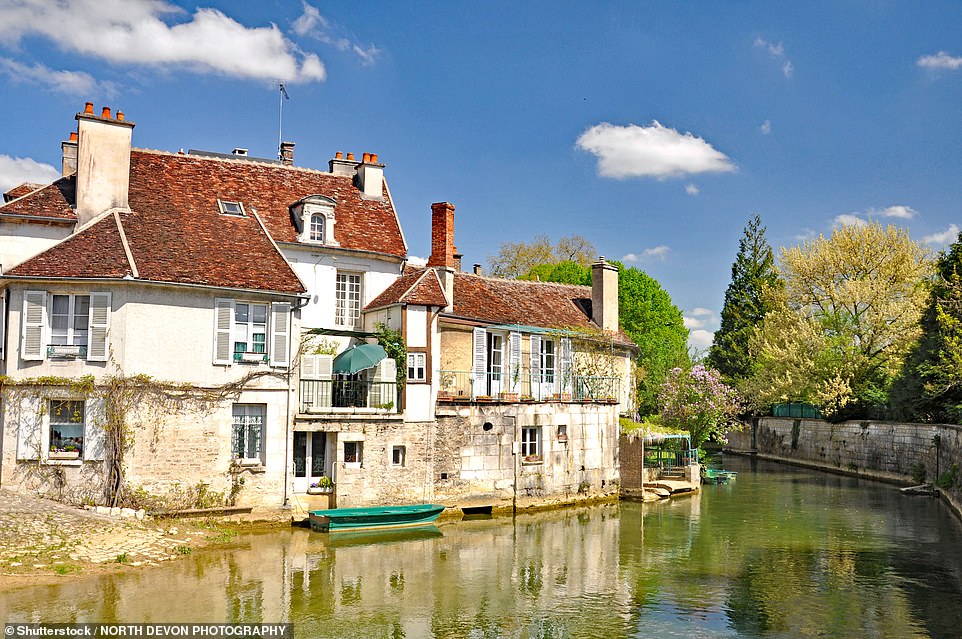
Pictured are a cluster of buildings in Tonnerre, which sits on the River Armancon
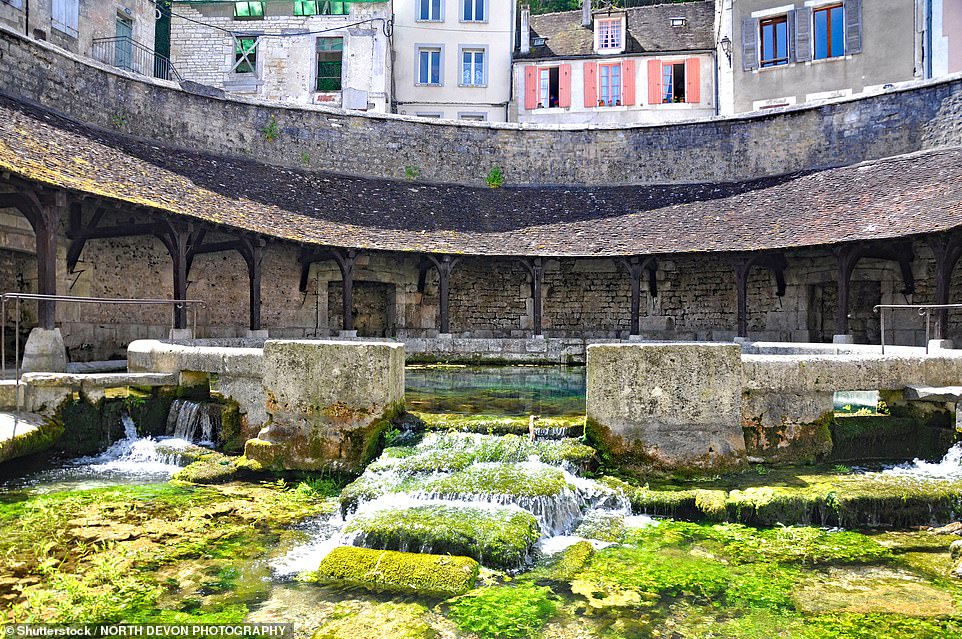
The spring spews out more than 300 litres of water per second – that’s enough to fill three standard bathtubs – and up to 3,000 litres per second during flooding
Over the years, scientists have carried out numerous experiments at the spring to try to establish its origins.
Dye tracing studies have intimated that some of the spring’s water comes from an underground section of the Laigne River, which flows above ground 27 miles (43.5 kilometres) from Tonnerre.
The most daring investigation of recent years, however, was carried out in 2019, when diver Pierre-Eric Deseigne was given permission from Tonnerre’s mayor to explore the dangerous passageways beneath the spring.
Descending 70 metres underground and exploring 370 metres (1,213 feet) of caves and tunnels, he was still unable to confirm the source of the spring.
The secret of the waters remains.

